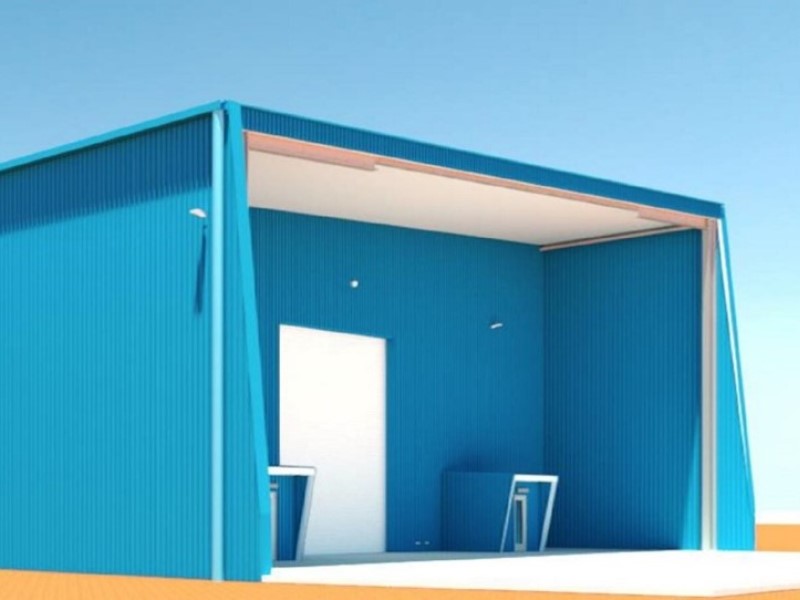Equatorial Launch Australia has showcased the final design of its assembly, integration and testing facilities, the last component of the space launch complexes being built at the Arnhem Space Centre.
The final design of the Horizontal Integration Facility (HIF) was released on Tuesday, a month after Equatorial Launch Australia (ELA) released its launch pad designs.
The HIFs have features tailored to the delivery of advanced space missions by launch vehicle companies and satellite payload manufacturers and are 40m (L) x 26m (W) x 12m (H) in size. They will be used for completing preparatory work ahead of a launch
Each of the seven space launch complexes (SLC) will give rocket launch companies access to one standard HIF and up to two launch pads.
ELA says the SLCs will comply with the stringent export control requirements of the United States’ International Trade in Arms Restrictions, the multilateral Missile Technology Control Regime, and the security requirements of the Australia-US Technology Safeguards Agreement, signed last year.

This includes a large rocket assembly area with static discharge points, pneumatic systems, and a high clearance cleanroom fully fitted for multiple payload preparation and integration.
Other features include a 20,000kg gantry crane, a workshop for fabrication work as well as minor repairs and prototyping, and ‘air lock’ dust prevention entrances.
ELA executive chair and group chief executive Michael Jones said the release of the final HIF designs “is another major milestone for ELA”, which will ensure ELA is “building a spaceport of the future”.
“We are confident that our facilities and services are, and will be, truly world leading, and we are very much looking forward to offering our customers a best-in-class experience from the moment they sign with ELA,” Mr Jones said.
“Our approach from day one was to stand in the shoes of our clients and look at everything they need to have a successful launch campaign from the Arnhem Space Centre. The SLC concept and the HIF design is far more detailed and complex than first meets the eye and will set the standard for launch operations.
“The innovative designs were born from extensive and comprehensive international research on current and past spaceport service offerings and deep discussions with customers on their current and future launch needs, while also considering the needs of regulators, commercial partners and us as the spaceport operator.”
The Arnhem Space Centre is the first Australian commercial spaceport and hosted the first NASA launch from a commercial port outside of the United States. NASA has now launched from Arnhem three times.
Do you know more? Contact James Riley via Email.

